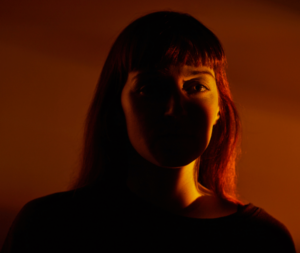Cadie Desbiens-Desmeules
Meta.Morf 2024 – [up]Loaded Bodies /
Kjøpmannsgata Ung Kunst, April 18 – August 18 /
Curators: Zane Cerpina, Boris Debackere, Espen Gangvik, Florian Weigl.
I’m not a Robot (2021)
As the modern saying goes: “If something is free, ‘you’ are the product.” It encapsulates the internet and the error of our ways. We use services for free, but pay with our data and free labor. The consequence is that half of online platform workers earn less than $2 per hour, while the Big Four (Google, Amazon, Facebook, and Apple) rake in trillions of dollars by harvesting human attention and intelligence. Media artist Cadie Desbiens-Desmeules examines these disparities through “I’m not a robot,” a series of artworks that explore the murky world of digital labor and human intelligence tasks.
Machine learning is nothing on its own: it requires millions of hours of human work to train an algorithm before its “intelligence” is realized. For AI to successfully identify something as a car, it first needs humans to identify thousands of images of cars. The discrete human workers behind this training process are known as “crowdworkers” performing “microtasks” or “microwork”, yet these micro actions have huge macro benefits for tech companies.
Amazon recognized AI and machine learning’s gigantic need for human intelligence and labor. In 2001, it created Mechanical Turk, a crowdsourcing website that enables businesses (known as Requesters) to hire remote crowdworkers to perform discrete on-demand tasks that are currently beyond the capabilities of computers. In 2018, The Atlantic called this work platform a “new kind of poorly paid hell.” Amazon’s Mechanical Turk has set valuable human labor on a freefall race to the bottom.
Yet it’s hard to demand better pay when we’ve collectively been training AI for free for decades by solving Captcha puzzles. Google’s reCAPTCHA service offers website owners a trade: if a site makes its users decipher hard-to-read text or match images, plus allows Google to track its users, Google promises to stop bots and spam in return. What seems like a fairly innocuous annoyance to a user is actually a powerful and lucrative method of extracting free labor. The company has used this tech to digitize the archives of The New York Times, to help Google Street View, to digitize books from Google Books, and more. To date, Google has extracted $7.3 billion worth of free labor using this method.
Data labeling is the fuel that powers machine learning. Desbiens-Desmeules was inspired to mess with this process and generate images that are impossible to identify, even for humans. The artist fed thousands of images of cats to an AI model specialized in identifying cars. This tongue-in-cheek experiment resulted in absurd-looking creatures that are neither cat nor car, yet somehow both at once. Desbiens-Desmeules then created a simulation of the Captcha challenge that asks users to identify either cats or cars, over and over and over… Regardless of the selections made, the application will continue to ask for more. The viewer is encouraged to click and click, offering an ever-increasing amount of precious intelligence training for free.
Modern tech companies have succeeded in surreptitiously manipulating human beings to be both free trainers for artificial intelligence and providers of valuable personal data. It would be comical if it wasn’t so unethical, and “I’m not a robot” ingeniously reflects this fact.
 Cadie Desbiens-Desmeules (CA), born in 1985, is an artist working between generative art and live performance. Her practice is either site-specific or installation-based, spanning immersive environments and augmented reality. Drawing on her background experience as a journalist, she casts a critical eye on technological trends with artworks that provoke thoughts and internal discussions about how we relate and engage with new technologies. Desbiens-Desmeules has presented her work worldwide, including digital art festivals and art galleries such as Arsenal Contemporary Art, the International Symposium for Electronic Art (ISEA), and TodaysArt.
Cadie Desbiens-Desmeules (CA), born in 1985, is an artist working between generative art and live performance. Her practice is either site-specific or installation-based, spanning immersive environments and augmented reality. Drawing on her background experience as a journalist, she casts a critical eye on technological trends with artworks that provoke thoughts and internal discussions about how we relate and engage with new technologies. Desbiens-Desmeules has presented her work worldwide, including digital art festivals and art galleries such as Arsenal Contemporary Art, the International Symposium for Electronic Art (ISEA), and TodaysArt.
In 2019, We Are Europe (WAE) selected Desbiens-Desmeules as one of the 64 artists, speakers, and public figures they consider the most inspiring European personalities. In 2021, her work was selected for the 5th International Digital Art Biennial (BIAN) alongside artists like Refik Anadol and Ryochi Kurokawa. Desbiens-Desmeules is currently based in Lisbon, Portugal. She continues to be active as a creative director and visual artist at Push 1 stop, collaborating with top industry talent and agencies such as Silent Partners Studio, where she has been working for Riot Games, Beyonce, Jay-Z, BTS, Billie Eilish, and Bruno Mars just to name a few.
Header Graphics: “Cat_C” by Cadie Desbiens-Desmeules. Courtesy of the artist.